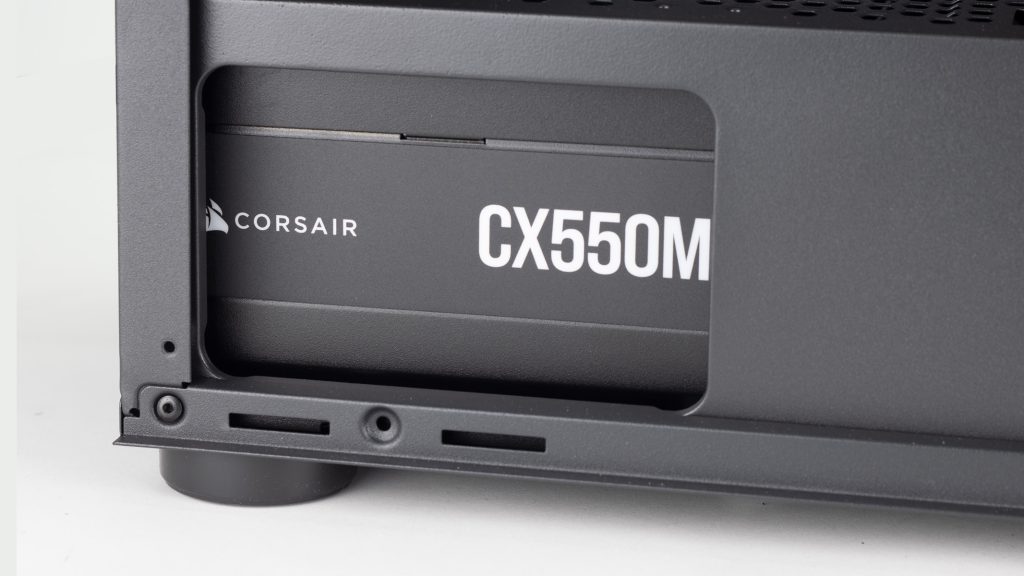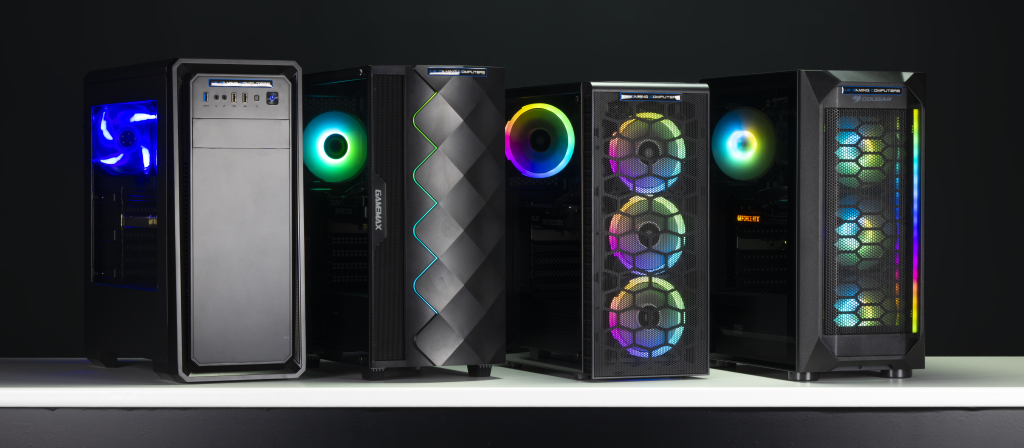TLDR - For the true running cost of running the average gaming PC then jump further down this article here. For anyone that is interested in just an answer then it's around £280 to £300 a year in electricity. If you want to know the science behind it, then read on!
When it comes to picking out an appropriate power supply for your new build, it's efficiency rating is now much more important due to the spiralling costs of home and commercial electricity supply. Many moons ago, power supplies were one of the last parts chosen to finish a build and to be totally honest always massively overlooked, ultimately a power supply was never going to improve your graphics settings, make games load faster or run programs any quicker and so unfortunately many people simply looked at the wattage rating along with the price and ordered away!
For those that took the risk and didn’t take the time to look into things properly usually found out the hard way and ended up with a failed power supply sooner rather than later. As a result many more people are more aware of what actually constitutes towards a good quality and ultimately reliable power supply. We covered this many years ago here, so if you are a little behind then feel free to have a read, everything there is still the same science and thus the core focus is very much so relevant. Anyway, the purpose of this article is not to explain the importance of every aspect of choosing a PSU, it’s to tell you how much it costs to run and how it's efficiency will save you money!
The power socket on your wall or if you are doing things properly, surge protector, provides AC power. Your computer uses DC power. The purpose of a computer PSU is to convert AC power to DC power, unfortunately this conversion is not 100% efficient, most of this lost energy ends up as heat; something else you don’t want to be generating in a custom gaming PC and it is this lost energy that defines a power supply efficiency. Once upon a time this efficiency rating was not regulated in anyway, it could be whatever the PSU manufacturer could come up with and this number was often never published. However, in 2014, EU Regulation Number 617/2013 came into force which states;
Regulation No 617/2013 builds on the already known Ecodesign Directive 2009/125 / EC, which calls for the environmentally sound design of computers or servers. The current extension of the regulation stipulates that internal power supplies must ensure an efficiency of 82% at 20% and 100% utilization, and 85% at 50% capacity utilization. Furthermore, the new EU regulation requires a power factor of 0.9 at full utilization of the power supply.
Regulation 617/2013


This in theory introduced a minimum efficiency standard to all power supplies. In practice, this did help and make PSU manufacturers sit up and take note however the reality is that it was, and still is, almost impossible to police. Lesser efficient PSU's were still made and are still very much made today, however it did help highlight the industries dark little secret. Whilst seemingly futile, it did hit the big PC brands out there, the bottom line is they could no longer take the risk on their mass produced systems and as a result were essentially forced to use "80 PLUS" certified power supplies to comply with the new law, which on the face of it was a win but what transpired was the big brands out there were using certified units, but when these were actually independently tested, they fell short of the requirements, so it’s one thing to have a "certified" unit and another for it to actually do what it’s meant to do! All of a sudden system builders and consumers (that are aware of the situation) were on the hunt for "certified" PSU's, irrelevant if they met the standard in reality or not, it is this movement that helped raise the efficiency rating within the industry but even to this day, many in reality still fall short of this requirement.
Efficiency Certification
For reference, in 2004 Ecos Consulting launched the power supply efficiency certification standard also known as 80+ or 80 Plus;
| 80 Plus test type | 115V internal non-redundant | 230V internal redundant | ||||||
|---|---|---|---|---|---|---|---|---|
| Percentage of rated load (%) | 10% | 20% | 50 | 100 | 10 | 20 | 50 | 100 |
| 80 Plus | 80% | 80 | 80 | |||||
| 80 Plus Bronze | 82% | 85 | 82 | 81 | 85 | 81 | ||
| 80 Plus Silver | 85% | 88 | 85 | 85 | 89 | 85 | ||
| 80 Plus Gold | 87% | 90 | 87 | 88 | 92 | 88 | ||
| 80 Plus Platinum | 90% | 92 | 89 | 90 | 94 | 91 | ||
| 80 Plus Titanium | 90% | 92% | 94 | 90 | 90 | 94 | 96 | 91 |

Science!
A unit of power is measured in "Kilowatt Hours" (kWh). A Kilowatt is 1000W. In Q2 2022 a good standard unit rate is 37 pence per kWh used. Right now there is talk of these rates going even higher in Q4 2022 but for the purpose of this article and having a solid number to work with, we are going to use 37p per kWh. We are also going to work with a typical custom PC that requires up to 600W of power, or to simplify, needs a 600W PSU. 600W on full load equates to 0.6 kWh. Over a period of 24 hours (multiply by 24) that is 14.4 kWh. Over a year (multiply by 365) this equates to 5256 kWh.
100% Efficient, 24/7, 365
To run a 100% efficient 600W PSU for 1 hour simply take your kWh of the unit (0.6kWh for 600w) and multiply it by the kWh rate (currently 37p or £0.37). 0.6 x 0.37 = £0.22 cost per hour of use.
An Entire day is simply your hour cost (£0.22) multiplied by 24 = £5.28. For a year, take your day rate (£5.28) and multiply that by 365 = £1927.20. That's a big number but it is on the presumption of 100% load for an entire year, unless you are mining cryptocurrencies then a typical user will in no way consume that much power but we need to scale things up before we can put things into perspective.
Real Efficiency
As we already know, unfortunately no power supply is or will ever be 100% efficient;
| PSU Efficiency | Required power to actually provide 600W | Energy Used |
| 50% | 1200W | 1.2 kWh |
| 70% | 857W | 0.85 kWh |
| 80% | 750W | 0.75 kWh |
| 82% (80 Plus Bronze Certification) | 731W | 0.73 kWh |
| 87% (80 Plus Gold Certification) | 689W | 0.68 kWh |
| 89% (80 Plus Platinum certification) | 674W | 0.67 kWh |
| 100% | 600W | 0.6 kWh |
How much use is that over the year?
Energy used x hours in a day x days in the year
| PSU Efficiency | Calculation | Energy Used over a year |
| 50% | 1.2 x 24 x 365 | 10,512 kWh |
| 70% | 0.85 x 24 x 365 | 7,446 kWh |
| 80% | 0.75 x 24 x 365 | 6,570 kWh |
| 82% (80 Plus Bronze Certification) | 0.73 x 24 x 365 | 6,394 kWh |
| 87% (80 Plus Gold Certification) | 0.68 x 24 x 365 | 5,956 kWh |
| 89% (80 Plus Platinum certification) | 0.67 x 24 x 365 | 5,869 kWh |
| 100% | 0.6 x 24 x 365 | 5,256 kWh |
Which costs what?
To do so, simply multiply the energy used over a year by the kWh cost;
| PSU Efficiency | Calculation | Yearly Cost |
| 50% | 10,512 x 0.37 | £3,889.44 |
| 70% | 7,446 x 0.37 | £2,755.02 |
| 80% | 6,570 x 0.37 | £2,430.90 |
| 82% (80 Plus Bronze Certification) | 6,394 x 0.37 | £2,365.78 |
| 87% (80 Plus Gold Certification) | 5,956 x 0.37 | £2,203.72 |
| 89% (80 Plus Platinum certification) | 5,869 x 0.37 | £2,171.53 |
| 100% | 5,256 x 0.37 | £1,944.72 |
As you can see, these are frightening numbers, but remember this is for a system that's running at full tilt 247/365 which is not real world usage although if you are doing something like mining or running a rendering rig hard then your real use will be in this region.
The average gamer

The average gamer is a very broad statement, we all vary in rig spec and time spent on a system but in order to scale back these numbers and put them into a real world perspective we need to pick something. Currently, an average to high end Intel i7 12700K CPU, combined with say an average Nvidia RTX 3060 based system is going to use around 450W of power when running the latest shooter, this is towards the upper limit of a 600W PSU so plays fairly well for these numbers. We are also going to go with 28 hours of gaming a week but as we are working with hours, days and years we will keep it at a nice round 4 hours a day.
| PSU Efficiency | Required Power for 450W | Energy Used kWh | Usage Calculation | Yearly Usage kWh | Cost Calculation | Yearly Cost |
| 50% | 900W | 0.9 | 0.9 x 4 x 365 | 1314 | 1314 x 0.37 | £486.18 |
| 70% | 642W | 0.642 | 0.642 x 4 x 365 | 937.32 | 937.32 x 0.37 | £346.18 |
| 80% | 562.5W | 0.562 | 0.562 x 4 x 365 | 820.52 | 820.52 x 0.37 | £303.59 |
| 82% (80 Plus Bronze Certification) | 548.8W | 0.548 | 0.548 x 4 x 365 | 800.08 | 800.08 x 0.37 | £296.02 |
| 87% (80 Plus Gold Certification) | 517.2W | 0.517 | 0.517 x 4 x 365 | 754.82 | 754.82 x 0.37 | £279.28 |
| 89% (80 Plus Platinum certification) | 505.6W | 0.505 | 0.505 x 4 x 365 | 737.3 | 737.3 x 0.37 | £272.80 |
| 100% | 450W | 0.450 | 0.450 x 4 x 365 | 657 | 657 x 0.37 | £243.09 |
Anyone that buys a custom system from a real reputable PC manufacturer that goes about it's business honestly or takes the time to research about PSU's before picking one out will be using at least a 80 Plus Bronze certified PSU that genuinely performs at it's certified rating. PSU brands such as Corsair, EVGA, Cooler Master, Phanteks & Seasonic are a great giveaway here - these are the brands that pride themselves on selling something that actually does what it says on the spec sheet. If you have a decent rig and thus a decent PSU then as an "average gamer" you can expect your electric bill to work out around £296 per year.
Unfortunately the vast majority of PSU's out there either flat out don't meet the 80 Plus certification and it's efficiency certification is unknown or worse still, has a 80 Plus certification but in reality doesn't get close to the standard. We don't want to go pointing fingers, but if you are looking at a PC or PSU where the 80 Plus certification information is absent or can be picked up from your local retail park that very day then it's likely you wont see that minimum 82% efficiency. 60-70% is probably best you could hope for but if we air on the best side of this story and go with 70% then you can expect a electric bill of around £346.
The biggest take from comparing a true 70% efficient PSU with a true 80 Plus Bronze 82% efficient PSU is that over the period of a year, a slither of a good PSU's lifetime, it costs an extra £50 to run the very same PC. For what it costs to buy a decent genuine 80 Plus Bronze rated 600W PSU compared to some completely unknown brand with non-existent certification is less than that £50! The best bit, is that's £50 saving every year, so if you have "invested" in something unknown then you may as well be throwing that £50 on the fire every year. Ultimately, a good PSU will pay for itself and for anyone in the know, justifying that extra money to spend on a PSU should clearly be a no brainer.

Things come closer when comparing a 80 Plus Bronze and 80 Plus Gold certified unit, by far the two most popular worth having units. When you directly compare the costs, you pocket around £17 a year. Whilst £17 is probably quite tight when comparing the cost between an equivalent Bronze and Gold power supply, 2 years worth of electricity saving will more than cover that cost and anything after that is simply a bonus! It literally pays to go for a better Gold rated PSU over a Bronze rated PSU. This is also further amplified as Gold rated units tend to exist in the 600W + realm, so the more powerful the PSU/more power the system uses the more power used and thus the more money saved per year.
Lastly, we need to talk about the cost difference between a Gold rated power supply and a Platinum rated unit. Over a year, the "average gamer" will save just under £7 a year. It's not a lot as we are only comparing 2% here, and whilst those yearly £7 savings will add up over 5, 6 or even 7 years, which is a perfectly comfortable amount of time (and usually covered under warranty) for a good quality power supply to last, Platinum rated PSU's do command a hefty premium over Gold and Bronze units and that saving may not be enough to cover the cost difference between a Gold unit and a Platinum unit. That said, you will still have a better PSU by choosing a equivalent Platinum unit over Gold unit in terms of reliability, heat produced, features and warranty period which is arguably worth it on it's own but from a purely economical standpoint, even when scaling up to a more powerful unit, it's hard to justify.
In Conclusion
Depending on your use case, running a gaming PC can be quite a costly expenditure, so knowing the total cost to run the system per day, month and year can be extremely beneficial for future purchases or even upgrading what you have already.
Its safe to say the conversation around PSU efficiency and gaming PC costs is growing and we feel its important everyone knows what they are paying for and how they can save a lot of money over the course of their PC's lifetime by making informed purchasing decisions.
If you'd like to know more in relation to PSU purchasing you can check out our PSU buyers guide (New for 2022) here.


